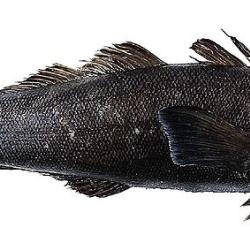Source Institutions
Source Institutions
Add to list Go to activity
Activity link broken? See if it's at the internet archive

In this data analysis activity, learners use data collected by the Commission for the Conservation of Antarctic Marine Living Resources (CCAMLR) to study Chilean sea bass populations. Learners formulate catch and catch per unit effort (CPUE) of Dissostichus eleginoides and analyze the trends in these values. Learners also assess the Chilean sea bass population and determine if the population is being overfished.
- Under 5 minutes
- 1 to 2 hours
- $1 - $5 per student
- Ages 14 - 18
- Activity, Lesson/Lesson Plan
- English
Quick Guide
Materials List (per student)
- Table 2: Catch (pdf)
- Table 8.2: Effort (pdf)
- Worksheet
- Graphing paper
- Ruler
- Bridge's graphs
- Pen or pencil
Subjects
-
Earth and Space Science
-
Earth Structure
- Oceans and Water
-
Earth Structure
-
Life Sciences
-
Diversity of Life
- Animals
-
Ecology
- Ecosystems
- Populations
- Biodiversity
- Human Impact
-
Diversity of Life
-
Mathematics
-
Data Analysis and Probability
- Data Analysis
- Data Collection
- Data Representation
-
Measurement
- Rate
-
Number and Operations
- Fractions
- Operations
- Representation
-
Data Analysis and Probability
-
The Nature of Science
-
Science and Society
- Risks and Benefits
- Public Policy
- Ethics
-
The Scientific Process
- Gathering Data
- Formulating Explanations
- Communicating Results
-
Science and Society
-
The Nature of Technology
-
Technology and Society
- Technology and the Environment
-
Technology and Society
Informal Categories
- Animals
- Food and Cooking
- Nature and Environment
Audience
To use this activity, learners need to:
- see
- see color
- read
- touch
Learning styles supported:
- Uses STEM to solve real-world problems
- Involves hands-on or lab activities
Other
Components that are part of this resource:
Includes alignment to state and/or national standards:
This resource is part of:
Access Rights:
- Free access
By:
- Ayers Lawrence, Lisa
Rights:
- All rights reserved, Virginia Sea Grant Marine Advisory Program,
Funding Sources:
- NOAA Sea Grant
- National Marine Educators Association
